Quick Facts
Location: Hand.
Bone Type: Long Bone.
Key Features: Head, body, base, medial and lateral surfaces, and proximal and distal articular facets.
Articulates With: Proximal phalanx of ring finger, capitate, hamate, third and fifth metacarpal bones.
Arterial Supply: Palmar metacarpal arteries.
Related parts of the anatomy
Key Features & Anatomical Relations
The fourth metacarpal bone is one of the five metacarpal bones of the hand. It’s classified as a long bone and includes the following bony features:
- parts: head, body, and base;
- surfaces: medial and lateral surfaces;
- landmarks: proximal, distal, and capitate articular facets.
More information regarding these bony features can be found in the Parts, Surfaces and Landmarks tabs for this bone.
The fourth metacarpal bone is located:
- proximal to the proximal phalanx of ring finger;
- distal to the hamate bone;
- medial to the third metacarpal bone;
- lateral to the fifth metacarpal bone.
It articulates with the:
- proximal phalanx of ring finger at the fourth metacarpophalangeal joint;
- capitate and hamate bones, contributing to the formation of the carpometacarpal joints;
- third and fifth metacarpal bones, contributing to the formation of the intermetacarpal joints.
Ossification
Ossification of the fourth metacarpal bone occurs at two ossification centers, these are found in the:
- body, which appears in utero at the ninth week;
- head, which appears within the second to third years.
These ossification centers fuse with each other during the fifteenth to nineteenth years (Standring, 2016).
Variations
The base of the fourth metacarpal bone can vary between individuals in terms of the number and size of its articular surfaces.
Surface Anatomy
The following bony features of the fourth metacarpal bone are relevant to surface anatomy:
- the head can be palpated at the “knuckle” that is proximal to the proximal phalanx of the ring finger, particularly during flexion of the fourth metacarpophalangeal joint;
- the body and base can be palpated along the dorsal aspect of the hand.
List of Clinical Correlates
- Fracture of fourth metacarpal bone (base or body)
- Boxer’s fracture of fourth metacarpal bone
- Mauclaire’s disease
References
Standring, S. (2016) Gray's Anatomy: The Anatomical Basis of Clinical Practice. Gray's Anatomy Series 41st edn.: Elsevier Limited.
Learn more about this topic from other Elsevier products





